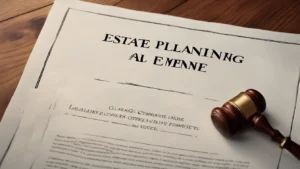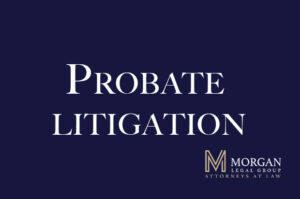If you’ve got a life partner but no marriage certificate, estate planning is a must. Without it, neither of you will inherit from each other and neither of you will have a say in the other’s end of life medical care.
If you die without a valid will, state law will dictate where your solely owned property goes after your death, and it won’t go to an unmarried partner. Instead, if you have no children, your closest relatives, including your parents, would inherit. Similarly, only your spouse or someone you’ve appointed in a valid power of attorney is allowed to make medical decisions on your behalf if you’re incapacitated. Fortunately, you can create the legal documents you need yourself.
1. Write Your Wills
If you’re got some assets you care about, you should write a will, so you can leave your property to the recipients you choose, your partner, friends, etc. If you don’t write a will and do not have children, much of what you leave behind will likely go to your parents or siblings, under your state’s laws. If you have young children, the other big reason for writing wills is to name a guardian for them. The guardian would raise the children if neither parent were able to. In that situation, the court would appoint someone as guardian.
2. Own Assets Together
Another way to make sure that neither of you is left out in the cold after the other dies is to own big-ticket items, such as houses and cars, together in joint tenancy with right of survivorship. That way, when one of you dies, the survivor automatically owns 100% of the property. To do this, you’ll need to put both of your names on the asset’s official title document like your car’s certificate of title or the deed to your house.
3. Designate Beneficiaries for Bank and Other Accounts
You and your partner may not want to share ownership of all your assets, for lots of reasons. And retirement accounts can’t be shared. So you’ll probably need other ways to make sure assets you own in your name alone get to your partner at your death. Some of these valuable assets may not pass through your will. All you have to do to leave them to the person of your choice is to ask for a beneficiary designation form from the bank or account custodian, and name the people you want to inherit the funds.
4. Make Living Wills and Durable Powers of Attorney
You need these documents to give your partner authority over financial and medical decisions, in case it’s ever necessary for someone to step in and make decisions on your behalf. Use durable powers of attorney for finances to give each other authority over your assets. This can be a big benefit if either of you is ever unexpectedly struck by illness or injury. You might need quick access to your partner’s checking account to pay the mortgage.
Estate Planning Tips for Unmarried Couples
Marriage can have an equally huge impact on an estate plan. With this rising trend of cohabitation among Millennials, it is important to understand the estate planning implications for unmarried couples. So what kind of estate plan do we need? While every estate plan looks different, here are five estate planning tips or considerations that all unmarried couples should keep in mind:
1. Re-title real estate to avoid probate.
When it comes to your stuff, a good estate plan ensures your assets will avoid probate and will go to the people you want to have them. Without legal documents providing for the transfer of title outside of probate, rigid intestacy laws will control who receives your assets through probate.
2. Appoint your partner as Attorney-in-Fact.
A Durable Power of Attorney is one of the most critical estate planning documents you can have; whereas other documents generally only affect others after your death, a power of attorney affects you during your lifetime. By naming your partner as Attorney or through a power of attorney, you can ensure that he or she has the ability to act for you in financial and/or medical situations in the event you cannot act for yourself.
3. Name partner as pay-on-death beneficiary.
Insurance policies, retirement plans, and even bank accounts often allow you to name one or more individuals like your partner as a pay-on-death beneficiary. Let’s say your partner lists you as the pay-on-death beneficiary of his bank account. After his death, you can take a copy of his death certificate to the bank, along with your own identification, and the bank will transfer the funds or re-title the account into your name
4. Create a digital estate plan.
Technology has changed everything, even estate planning. With the popularity of Facebook, e-mail, cryptocurrencies, and other online properties (e.g., this website), it is vital that you include digital assets in your estate plan to enable your representatives to access and/or dispose of your online accounts after your death.
5. Write a letter of instruction to your partner.
A letter of instruction is designed to tell your partner or other representatives everything they need to know to manage your estate. What subscriptions or services need to be canceled? What bills need to be paid? Where do you keep the key to your safe deposit box? Where do you keep your assets? What family or friends should they notify of your death?
Get Help
If you would like to know more on Estate Planning in our today’s life, please contact any of our estate planning attorneys today.









